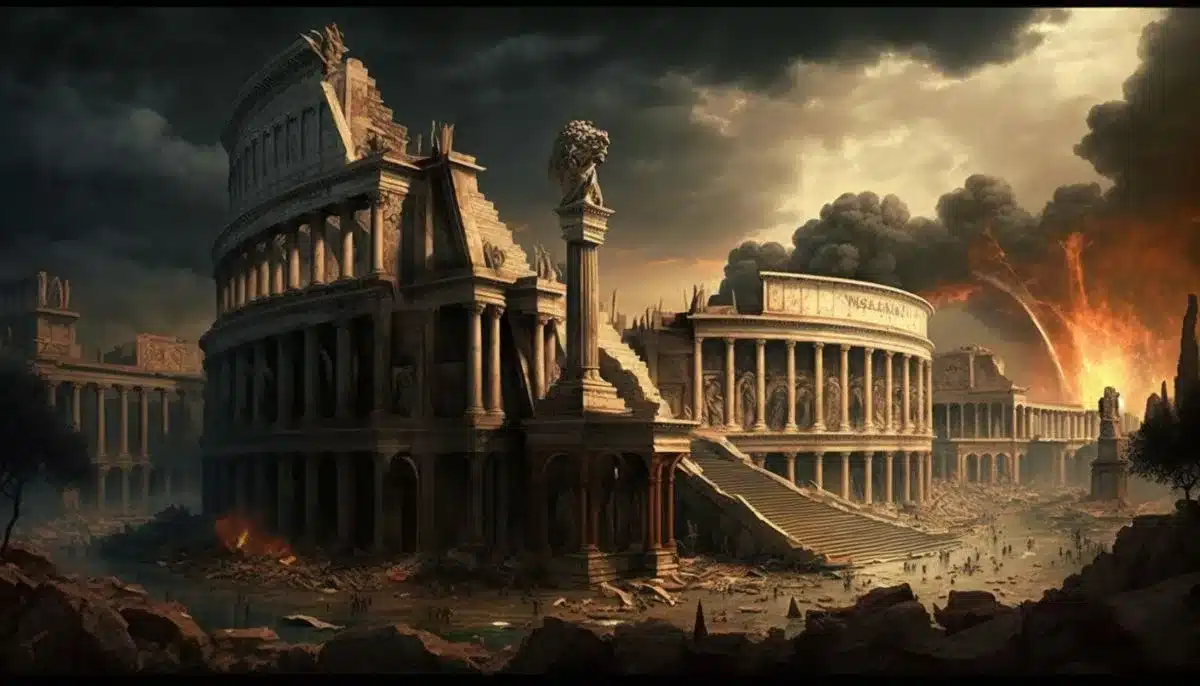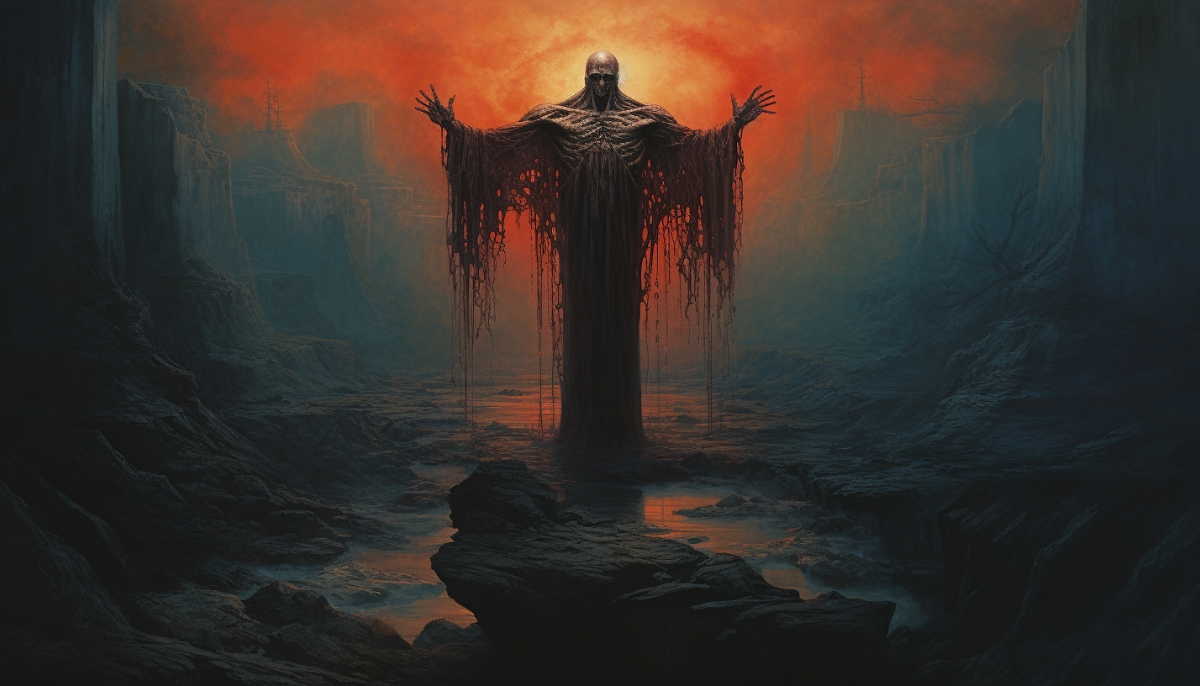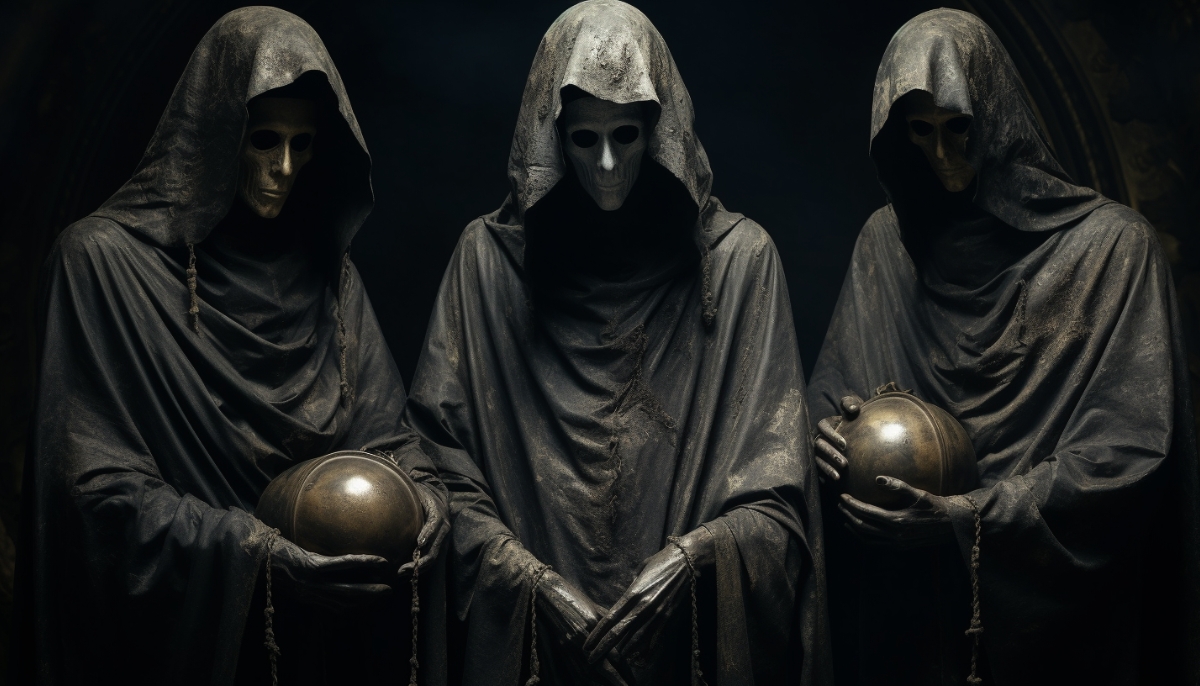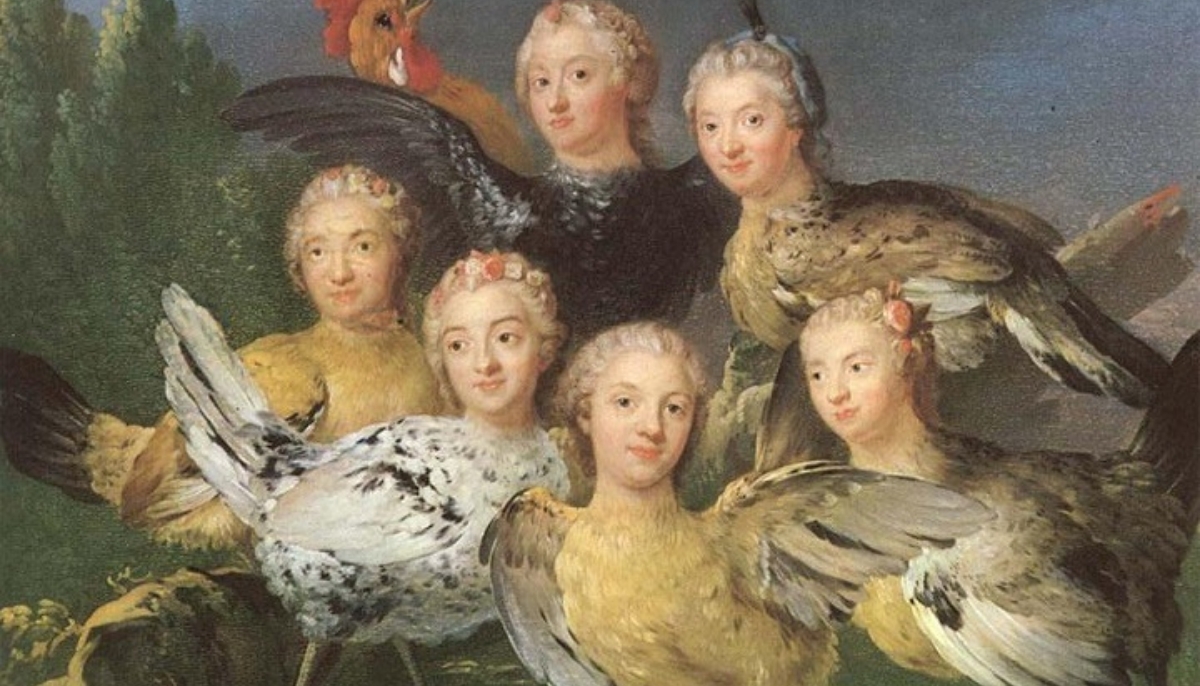What Led to the Fall of the Western Roman Empire?
The Roman Empire was a Mediterranean juggernaut that weathered plagues, wars, and uprisings for centuries.
Yet, in 476 AD, it collapsed.
Why did the Empire endure challenges in the third century but not in the fifth? Moreover, how did the Eastern Roman Empire survive for another millennium after the West fell?
The downfall of the Western Roman Empire is a complex subject with multiple contributing factors. This article explores these key elements to illuminate one of history’s most pivotal moments.
1. How Overexpansion contributed to the fall of the Roman Empire
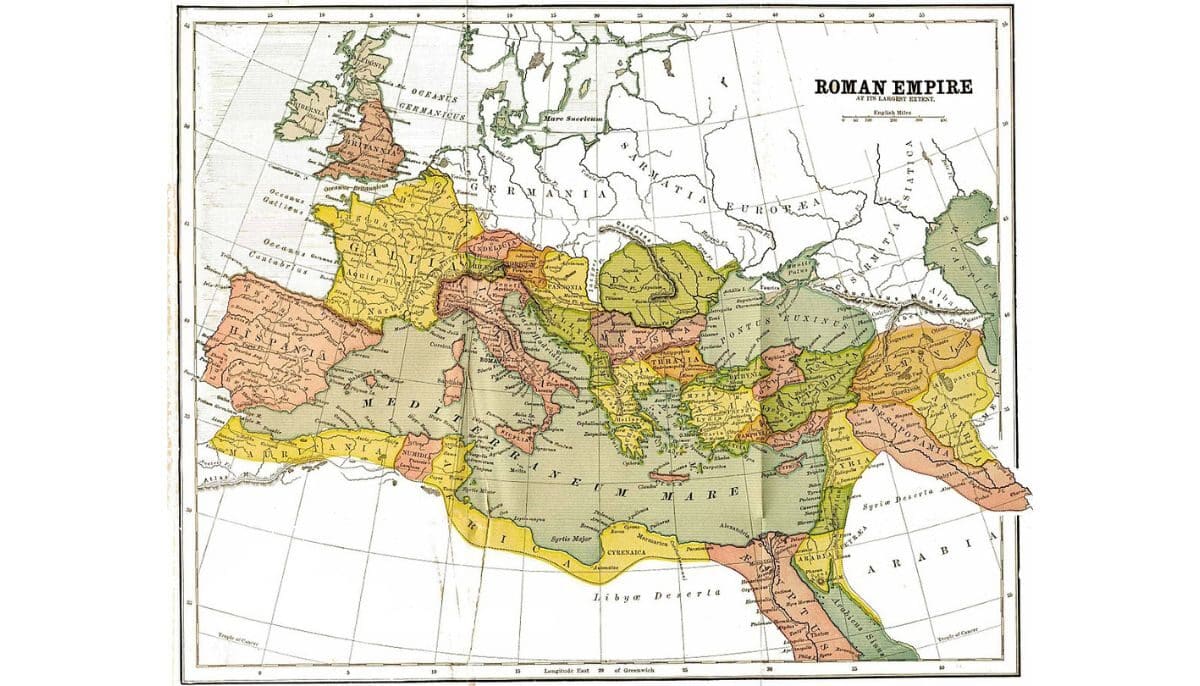
The Roman Empire’s extensive borders, stretching from the Atlantic Ocean to the Euphrates and from the Rhine and Danube rivers to the Sahara Desert, were its pride and its downfall. As the territory grew, so did the difficulties of governance.
Communication Lag
Centralized decision-making became inefficient due to long communication delays. Emperors stationed near the center of the Empire couldn’t relay orders to frontier legions quickly.
This lag forced provincial generals to act independently in crises, undermining Imperial authority and discipline among the troops.
An overreliance on inexperienced recruits and mercenaries exacerbated the problem. Frontline garrisons often disregarded orders, leading to indiscipline and revolts.
Cycle of Revolts
Success on the battlefield posed another issue. Victorious legions often credited their generals rather than the Emperor, fueling ambitions for revolt.
Generals who saw others succeed in this manner felt emboldened to challenge Imperial authority. The revolving door of revolts drained experienced legions from frontiers, leaving only undermanned and undisciplined troops to guard the Empire’s vast boundaries.
Resource Strain
Furthermore, managing such a sprawling Empire strained both manpower and finances. High taxation became necessary to fund defense and administration, which, in turn, weakened an already faltering economy.
2. Splitting into western and eastern halves
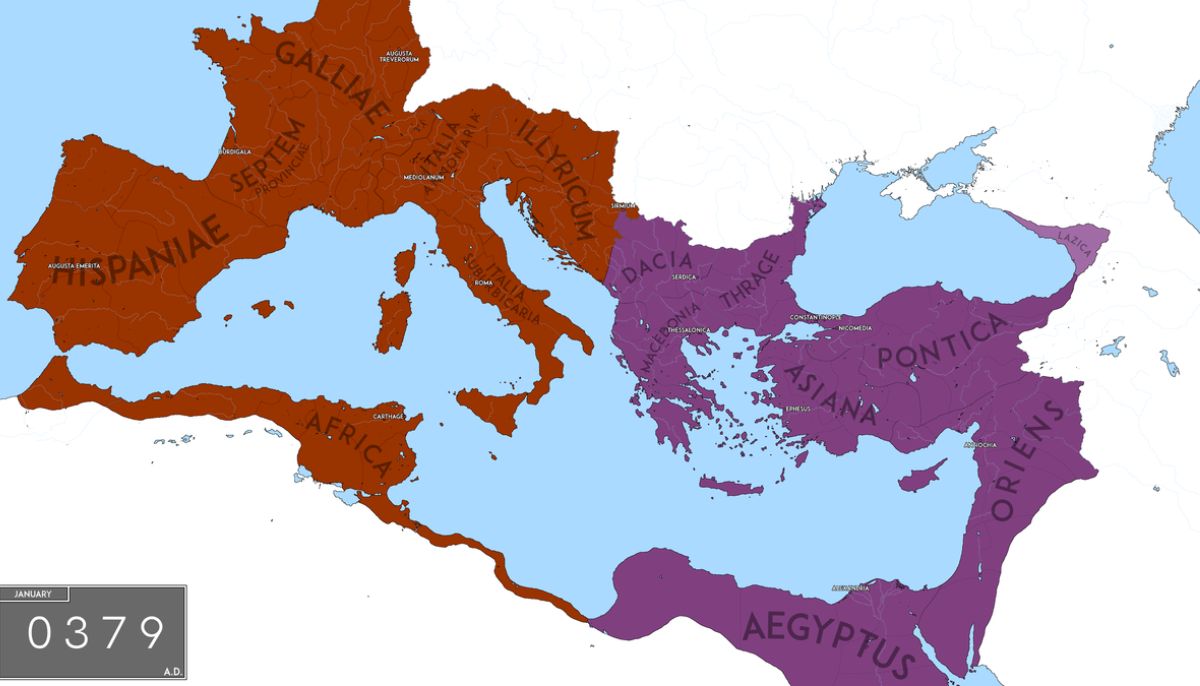
Emperor Diocletian’s late-third-century decision to divide the Roman Empire aimed to bring stability to a realm riddled with chaos and economic crises.
While it worked temporarily, this division set the stage for the Empire’s eventual downfall.
Cultural Divide
The split wasn’t just political; it was cultural. The Eastern Empire spoke Greek, while the Western Empire spoke Latin.
The East, with its thriving capital of Constantinople, became economically prosperous, unlike its Western counterpart, which struggled financially.
Economic Disparities
The East had the advantage in resources and defenses, evident in the formidable Theodosian walls of Constantinople.
In contrast, the Western Empire’s capital shifted among less-defendable cities like Rome, Ravenna, and Milan, making it vulnerable.
Disparate Responses to Threats
The differences came into sharp focus during invasions.
When the Huns attacked, the Eastern Empire had the luxury of diverting them West by paying them off.
Lacking a defensible stronghold or political unity, the Western Empire was ill-equipped to handle such threats, accelerating its collapse.
Initially aimed at stabilization, Diocletian’s split exposed the Western Empire’s vulnerabilities. It lacked political unity and fortifications to withstand invasions and raids, leading to its ultimate downfall.
3. lack of slave labor stalled the Roman economy
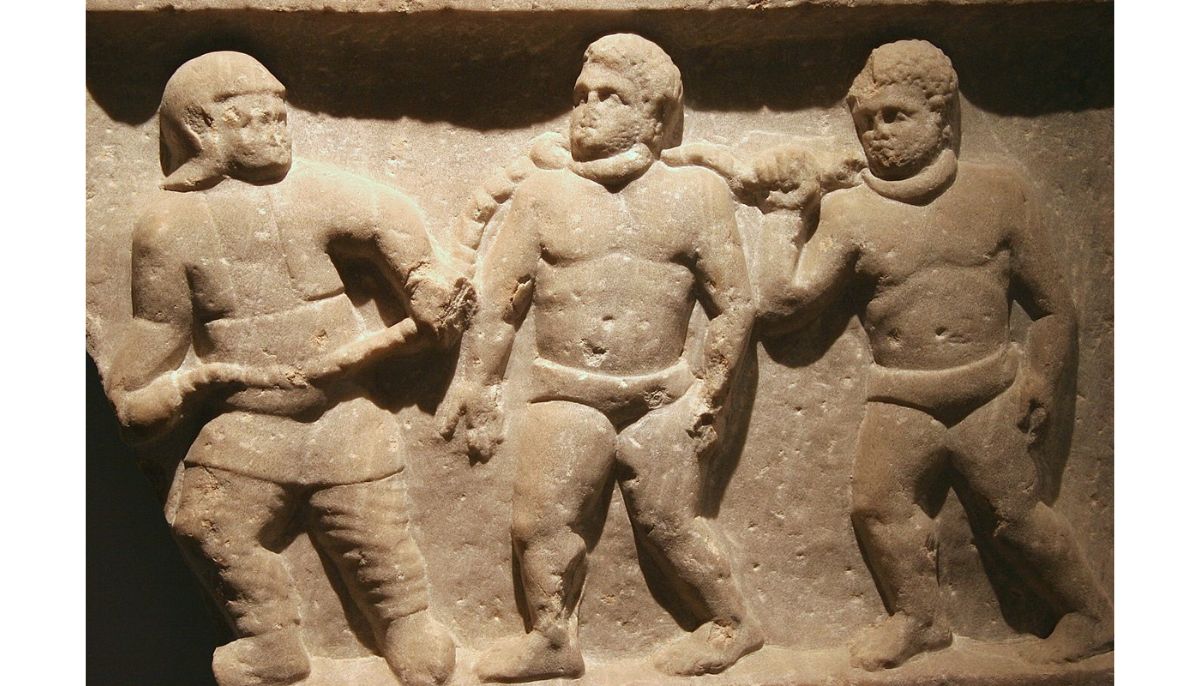
Slavery was integral to the Roman economy, fueling labor supply and military conquests. But as the Empire’s expansion stalled and territories like North Africa were lost to invaders, the slave supply started to decline.
Defensive Victories Don’t Help
Even when Roman emperors secured vital wins, these were often defensive rather than expansionist. These victories did little to bolster the economy or increase the slave supply, reinforcing a stagnant status quo.
This decline in economic fortitude rippled into military shortcomings. The Roman treasury could not financially outmuscle its rivals, making sustaining a robust military presence increasingly tricky.
4. weakening of the legions
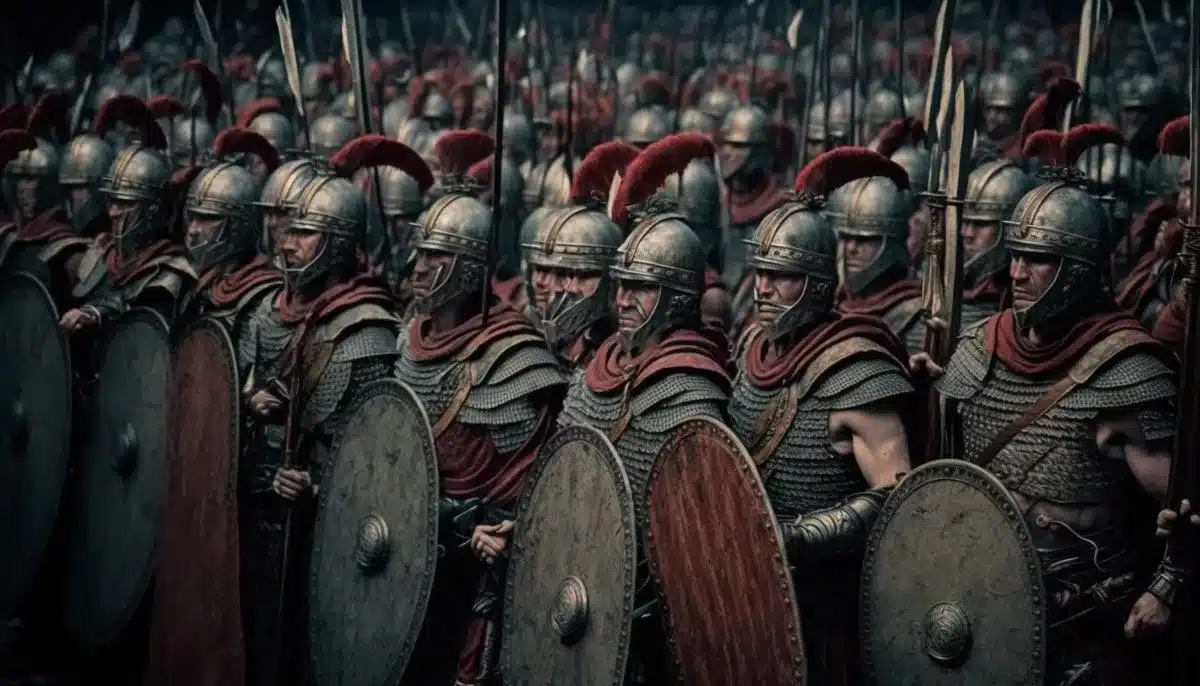
Rome’s renowned military saw a strategic pivot during its waning years due to manpower shortages and internal strife. Emperors like Constantine and Diocletian increasingly relied on mercenaries, a practice that reached unprecedented levels during this period.
While using mercenaries was not new, the scale was. Roman legions had previously absorbed mercenaries under their command structure.
However, this changed with the “Germanization” of the legions, where large numbers of Germanic Goths and other tribes were incorporated.
This heavy reliance on foreign troops posed multiple risks. These mercenaries often lacked strong allegiance to Rome, making them prone to bribery and external influence.
When Roman and Germanic interests clashed, it led to internal conflicts and revolts.
Power Imbalance
The result was a fragmented Roman military. Germanic generals became increasingly influential, undermining the unified command structure that had once been Rome’s strength.
The shift towards heavy reliance on mercenaries, mainly from Germanic tribes, eroded Rome’s military cohesion and defensive capabilities, contributing significantly to its decline.
5. collapse of imperial power
The Roman Empire weathered the third-century crisis, a period marked by civil wars and the Praetorian Guard’s king-making.
Stability returned under Aurelian and Diocletian, with the latter introducing the Dominate, a system granting the Emperor greater authority.
Impact of Poor Leadership
The Dominate worked well under influential rulers but suffered when led by incompetent Emperors.
In the early Empire, disastrous reigns like those of Caligula and Nero did not lead to collapse. However, in the late Empire, bad leadership had more dire consequences.
The rise of the puppet emperor
This centralization of power made the role of the Emperor crucial. While it enabled transformative rulers like Constantine, it amplified the damage caused by inept ones like Honorius.
This system was exploited by influential advisors, leading to puppet Emperors who were mere figureheads.
Notably, German general Ricimer manipulated this system, setting a precedent that continued until Odoacer, another Germanic general, ousted Romulus Augustus. This event marks what is traditionally considered the end of the Roman Empire.
The shift from the Principate to the Dominate magnified the importance of effective leadership.
When abused, this concentration of power led to a system of puppet Emperors and eventually contributed to Rome’s fall.
6. the invasion of the Huns
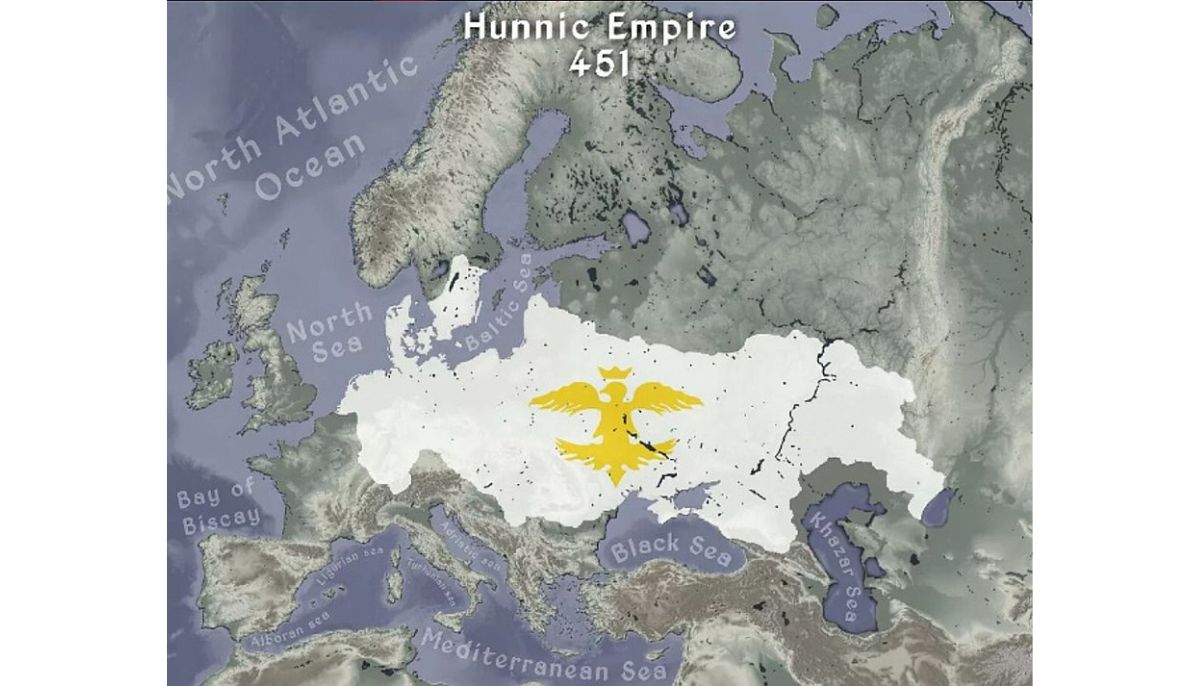
While internal issues were the main contributors to the Western Roman Empire’s decline, external forces like the Hunnic invasions played a crucial role.
Led by Attila, the Huns exacted tribute from the Eastern Roman Empire and terrorized the Western half.
Attila’s forces defeated several Roman armies and raided vital cities. Although halted by diplomatic efforts led by Pope Leo I, the Huns’ military campaigns weakened the Western Roman Empire’s defenses and diverted resources.
Forced Migrations
More than their military campaigns, the Huns indirectly destabilized Rome by pushing Germanic tribes like the Visigoths across Roman frontiers.
This forced migration strained the Roman military and led to significant internal upheaval.
7. invasion of the Visigoths
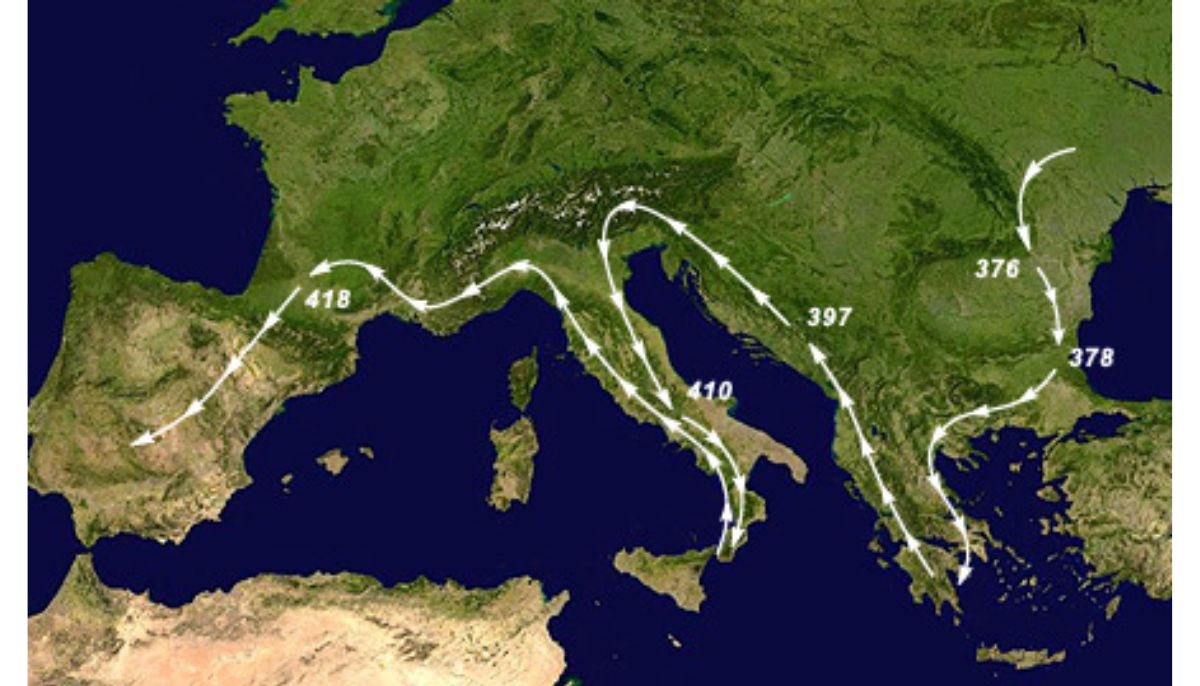
Emperor Theodosius’s mishandling of the Visigothic migration was the critical factor in the decline of the Roman Empire.
Unlike prior emperors who had effectively integrated migrants, Theodosius failed on this front, creating internal instability.
Previous emperors had dispersed migrating tribes across the Empire and enrolled their leaders into the Roman political system. This facilitated a smooth integration, often benefiting the Roman legions through additional manpower.
Theodosius did none of this with the Visigoths, leaving them alienated and susceptible to unrest.
Military Blunders
Local Roman forces mistreated the Goths, creating a volatile internal enemy. This culminated in the devastating Battle of Adrianople, where the Goths annihilated the Roman legions and killed Emperor Valens. This loss severely weakened Rome’s military and political clout.
Years later, these same Goths would sack Rome and establish their own kingdom in Aquitaine, both unthinkable events in an earlier Roman era.
The failure to effectively manage and integrate the Goths eroded Roman power and paved the way for the Western Roman Empire’s collapse.
8. Did the rise of Christianity cause the Roman Empire to collapse?
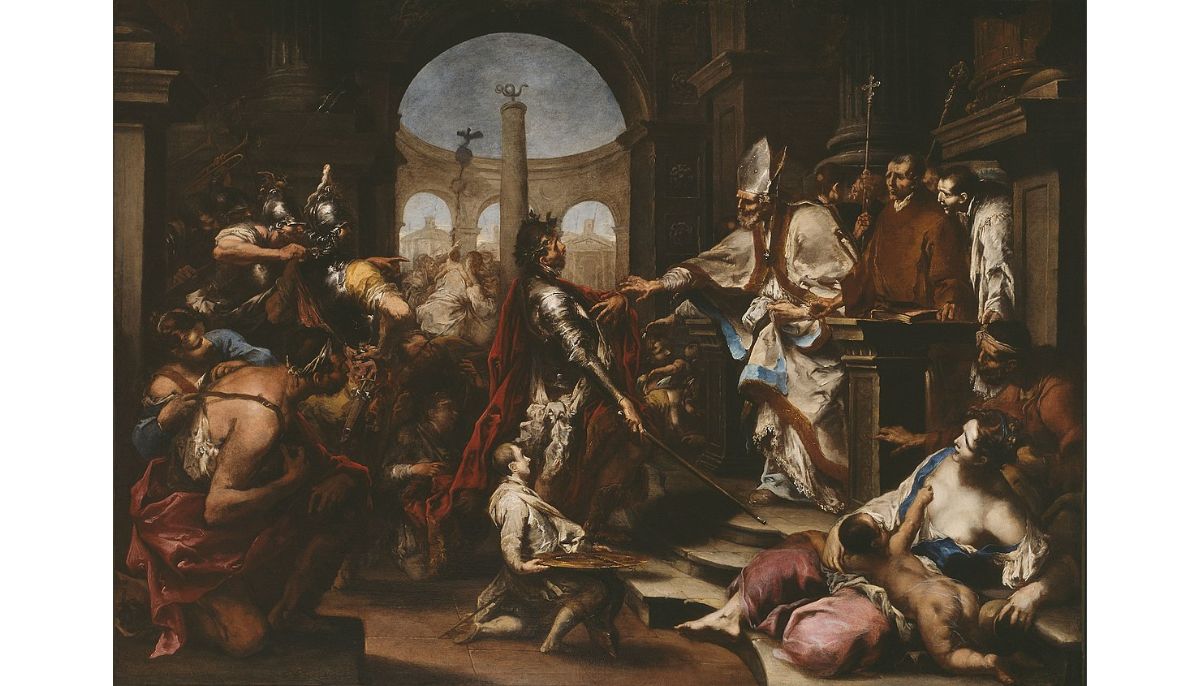
The role of Christianity in the fall of the Western Roman Empire remains contested. Edward Gibbon posited that Christianity weakened Imperial authority by conflicting with state principles. However, this view has critics.
Religious Shift and Imperial Authority
The shift from polytheism to monotheism changed the religious landscape. Christians didn’t deify emperors, which some argue could have undermined Imperial power. But this perspective has many detractors.
Despite repeated sieges over 1000 years, the Eastern Roman Empire, also Christian survived. This suggests that other factors like economic and military issues greatly impacted the Western Empire’s decline.
Positive Impact of Christianity
Some scholars argue Christianity had a stabilizing influence during a turbulent period. It offered community and preserved classical knowledge.
Moreover, converting barbarian tribes facilitated their integration into Roman society, shaping medieval Europe.
While opinions vary, it’s unlikely that Christianity caused the Empire’s fall alone. Other factors, such as economic problems, military defeats, and political instability, seem to have had a more significant role. Christianity’s impact, if any, was complex and multi-faceted.
The Empire faced many challenges, from internal issues like economic decline, political instability, and military shortcomings to external pressures such as invasions and migration.
The role of Christianity remains a subject of debate, leaving us to ponder:
How significant was the shift in religious landscape in the Empire’s decline?
Did cultural and economic differences between the Eastern and Western halves play a fatal role?
Could different political decisions have altered the course of history?
As we reflect on these questions, the fall of the Western Roman Empire serves as a cautionary tale about the importance of adaptability, effective governance, and treating migrants with respect and dignity.
